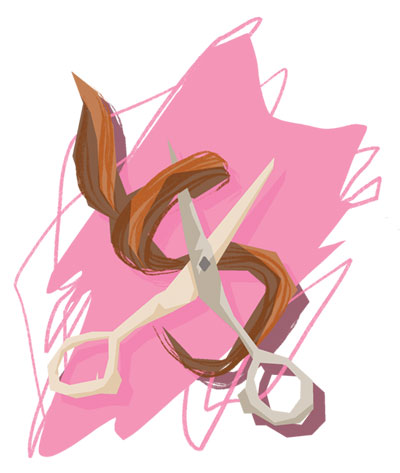Like every child, I always enjoyed the story of Samson. Our Sabbath school teacher would say, “He was the strongest man in the world.” The details of the story and the number of people he defeated made him seem like the greatest superhero—stronger than any Marvel character. But the end of Samson’s life is surprising. Unlike most heroes we admire, Samson dies.
Samson’s story is full of ups and downs. He was born with a special purpose, chosen by God (Judges 13:3–5) and blessed with great strength (Judges 14:6; 15:14,15). But his life didn’t turn out as expected. More than anything else, Samson’s story is about how he used his eyes—what he looked at (Judges 14:1,2), what he followed and how that affected his life. His eyes led him in the wrong direction many times, and in the end, he lost them (Judges 16:21). But that’s also when he finally began to see clearly (Judges 16:28–30).
Judges: Everyone did what seemed right
Samson’s story comes near the end of the Book of Judges, a time when the people of Israel often forgot about God. A common line in the book is, “Everyone did what was right in their own eyes” (Judges 21:25). That’s exactly what Samson did. When he saw something he wanted, he went after it—even if it wasn’t what God wanted for him. When he saw a Philistine woman, he told his parents, “She is right in my eyes” (Judges 14:3). He made decisions based on what looked good, not what was good.
In the Hebrew language, the word ayin (עַיִן) means “eye” but it can also mean how we see or understand things. The word ra’ah (רָאָה) means “to see” and it’s used both for physical sight and deeper understanding. When Samson said something was “right in his eyes” (yashar יָשָׁר) it meant he thought it was good—even if it wasn’t right in God’s eyes. That’s the same problem the whole nation had.
Samson saw a woman (Judges 14:1), saw honey in a dead lion (14:8), saw a prostitute in Gaza (16:1) and trusted Delilah because of what he saw on the outside. But all these choices pulled him away from God. Finally, the Philistines captured him and gouged out his eyes (Judges 16:21). He became blind. But in a way, that’s when he began to see clearly for the first time.
Losing sight to find vision
After Samson lost his physical sight, he started to understand his true purpose. He prayed to God—not just for revenge, but for the strength to finish what he was meant to do: “O Lord God, please remember me and please strengthen me only this once . . .” (Judges 16:28). In the end, Samson gave his life to defeat the Philistines. He did more in his death than he had done in his life (Judges 16:30). This change shows us something big: when Samson could no longer see with his eyes, he started to understand through his faith. While Samson followed what looked good, God stayed focused on what was truly good.
What about us?
For me, Samson’s story is more than history—it feels like a mirror. I remember times when I followed what looked good on the outside—it was chasing opportunities, relationships, or even recognition—without first asking if it were good in the eyes of the Lord. Like Samson, my eyes often wandered, and I learned the hard way that not everything that glitters is from God. Samson’s story reminds me that my vision can fail, but God’s never does.
In this 21st century, almost everything looks appealing.
New philosophies tell us to “follow your heart”.
Ideologies promise freedom but can lead to division.
Spirituality is often shaped by feelings instead of God’s Word.
Politics is full of personalities that look strong but lack integrity.
Entertainment is everywhere—fast, fun, flashy and often shallow.
Even AI and new technologies can seem exciting, but if we’re not careful, they can be appealingly good and not fully serving the heart.
We need to be honest: not everything that looks good is good.
Like Samson, we’re tempted to live by sight. But God calls us to live by faith.
The good news is this: even when we fail, God still sees us. He still loves us. He can still use us. Just like He gave Samson one more chance, He gives us grace and hope. Like Samson, we can easily follow our eyes instead of our faith. The Bible warns us: “There is a way that seems right to a man, but its end is the way of death” (Proverbs 14:12).
Where did Samson’s strength come from—and what was his weakness?
People often say Samson’s strength was in his hair. But was it really?
Yes, God told his parents he was to be a Nazirite from birth (Judges 13:5), and one part of the Nazirite vow was to never cut his hair. So when Delilah cut his hair, the outward sign of his vow was broken. But the real issue wasn’t the hair—it was his vacant heart. Judges 16:20 makes it clear: “He did not know that the Lord had left him.”
Samson’s strength didn’t come from his hair—it came from God. The hair was just a symbol of the relationship. When Samson treated his calling lightly, when he kept pushing boundaries and finally gave up his secret to a woman who didn’t love him, he stepped outside of God’s covering.
And what about his weakness?

It wasn’t Delilah. It wasn’t the Philistines. It was his eyes.
From the beginning, Samson lived by what he saw. He saw a woman and said, “She is right in my eyes” (Judges 14:3). He chased beauty, danger and pleasure—things that looked good but were not good for him. His eyes pulled him away from God’s plan again and again.
In the end, the enemy gouged out his eyes (Judges 16:21). Samson’s eyes were both his gift and his downfall. His weakness was what he followed with his eyes. And his strength returned when he finally looked to God even without his eyes.
The Bible calls us to a different way of living—one not based on what we see, but on what God wants us to be. “The righteous shall live by his faith” (Habakkuk 2:4). Paul echoes this in the New Testament: “For we walk by faith, not by sight” (2 Corinthians 5:7). These verses challenge us to trust God’s voice more than our own eyes. In a world full of distractions and illusions, faith in God is the only clear path forward.
Samson dies because of a vacant heart and wandering eyes! This story asks us a simple but serious question: Will we live by what looks right, or by what is right in God’s eyes?
Toma Naivalu is from Fiji, pursuing a master’s degree in religion, with an emphasis on systematic theology, Adventist International Institute of Advanced Studies in the Philippines.






